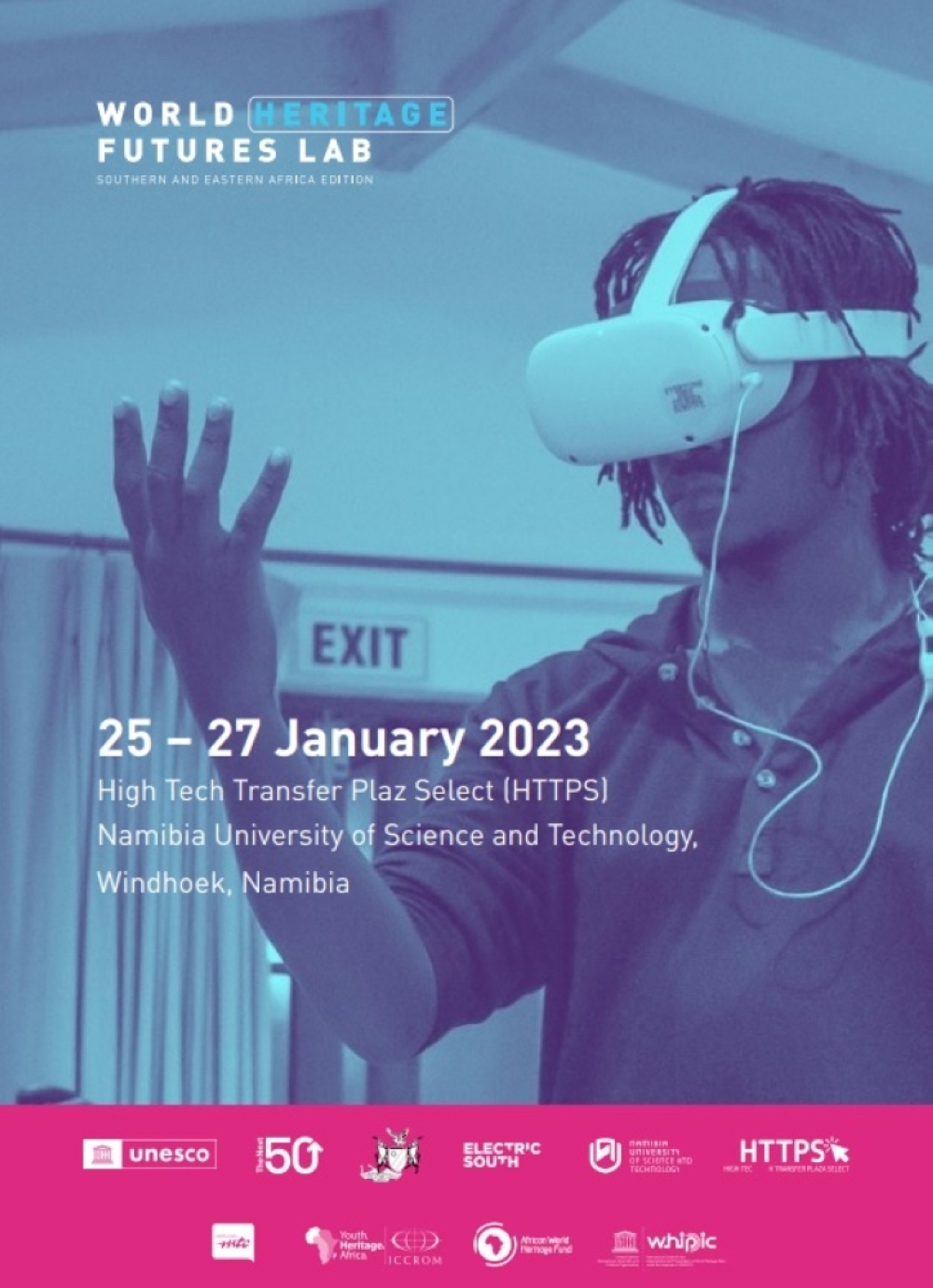Looking to the future
World Heritage Futures Lab kicks off in Windhoek
The “World Heritage Futures Lab: Southern and Eastern African edition” takes place at NUST in Windhoek from 25 to 27 January 2023.The event is hosted by the United Nations Educational, Scientific and Cultural Organisation (UNESCO) in collaboration with Namibia’s Ministry of Education, Arts and Culture, Namibia University of Science and Technology (NUST), International Centre for the Study of the Preservation and Restoration of Cultural Property (ICCROM), African World Heritage Fund (AWHF), MTC Namibia, Electric South and the International Centre for the Interpretation and Presentation of World Heritage Sites under the auspices of UNESCO (WHIPIC).
The lab facilitates the development and dissemination of dynamic digital content and products for a deeper understanding and appreciation of the contribution of World Heritage in Southern and Eastern Africa to sustainable development and lasting peace. It will enhance the capacities of African creative technologists and local communities living in or around selected Southern and Eastern African World Heritage sites to interpret World Heritage values and contribute to the development of new attractive and engaging narratives about World Heritage sites in the two regions.
The lab also enhances African creative technologists’ capacities in experiential and immersive digital technologies.
The next 50
This initiative has been conceived as part of the 50th-anniversary celebrations of the UNESCO 1972 Convention Concerning the Protection of the World Cultural and Natural Heritage, “The Next 50”, which is an interdisciplinary reflection on the future of the World Heritage and aims to address one of the theme’s main priorities: digital transformation.
Currently, digital technologies and artificial intelligence are changing the way we enjoy and experience our shared heritage. Whether it is accessing information about the important contribution of African World Heritage to sustainable development and lasting peace, transmitting the practices and knowledge linked to the conservation of these unique sites, or using data to help us monitor their conservation, it is evident that the digital revolution is re-defining the way we protect, enjoy and transmit our World Heritage to future generations.
Twenty digital technologists and community representatives from Eastern and Southern Africa are participating in the lab which is facilitated by regional and international experts from Electric South, ICCROM, AWHF and UNESCO.
The lab is preceded by a high-level round table discussion on 25 January under the theme “African World Heritage interpretation and digital technologies: challenges and opportunities”, followed by a 3-day workshop to strengthen the capacities of creative technologists and local community members in interpreting World Heritage values and developing experimental and experiential digital content and products.
Participants must register in advance for the high-level round table discussion on 25 January, and they will receive a confirmation via email containing information about joining the meeting.
The Zoom link to register for the meeting is https://unesco-org.zoom.us/meeting/register/tZAqcuyvqD0sG9eINHXv4Yjuxd9yPvLGLHmJ
Looking to the future



